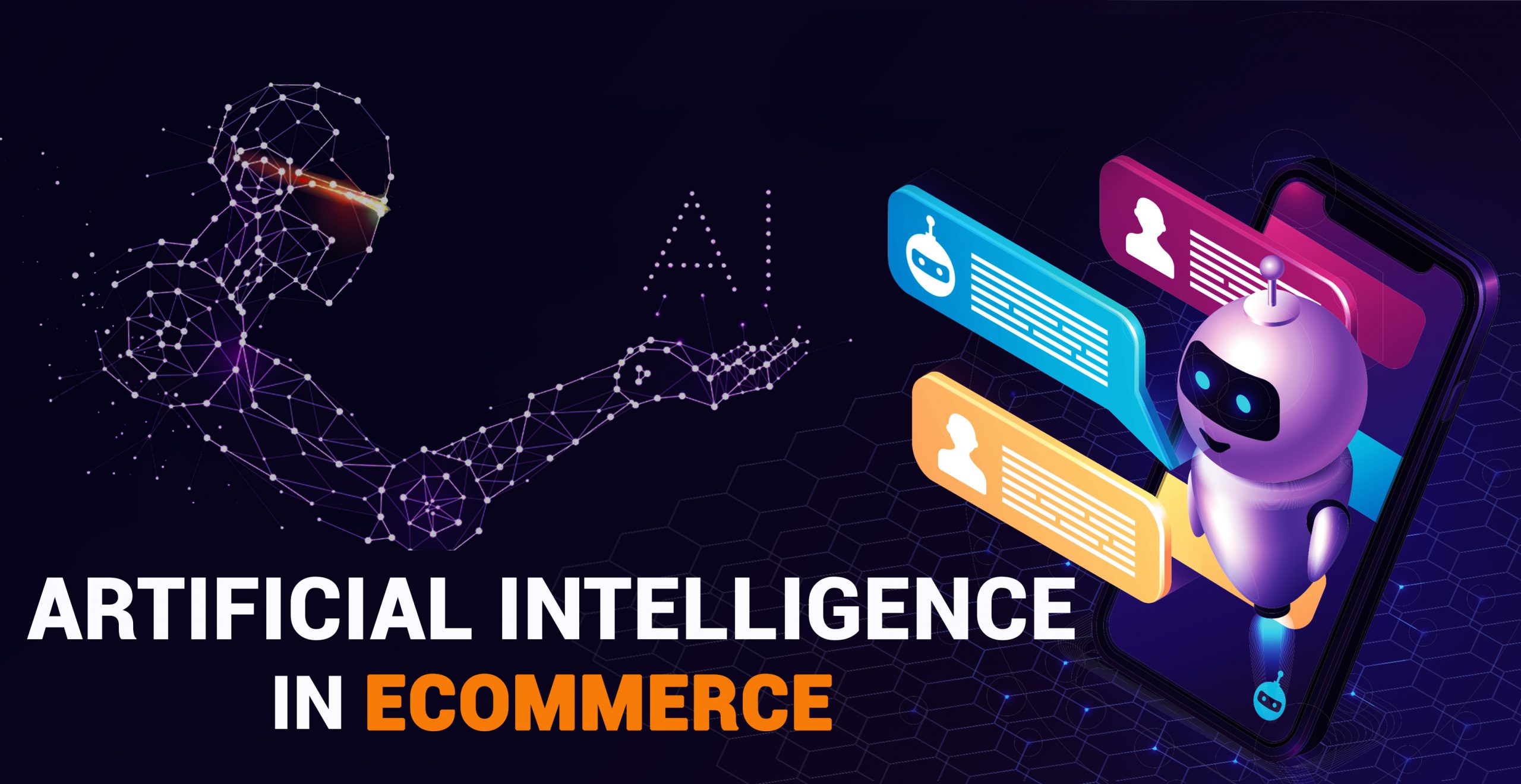Artificial Intelligence (AI) and Machine Learning (ML) have revolutionized numerous industries, and e-commerce is no exception. These technologies are pivotal in creating personalized shopping experiences, which are becoming increasingly essential in the digital marketplace. This article delves into the various aspects of AI and ML in e-commerce personalization, exploring their applications, benefits, challenges, and future prospects.
Introduction: Overview of Machine Learning and AI in E-commerce Technologies
Artificial Intelligence refers to the simulation of human intelligence processes by machines, particularly computer systems. These processes include learning (acquiring information and rules for using the information), reasoning (using rules to reach approximate or definite conclusions), and self-correction. Machine Learning, a subset of AI, involves the development of algorithms that allow computers to learn from and make predictions or decisions based on data.
In e-commerce, AI and ML technologies analyze vast amounts of data to identify patterns and trends. These insights enable businesses to offer personalized experiences to their customers, thereby enhancing user engagement, satisfaction, and loyalty. From recommending products based on previous purchases to providing personalized marketing messages, AI and ML have transformed how businesses interact with their customers.
Personalization in E-commerce: Importance of Personalized Shopping Experiences

Personalization in e-commerce refers to tailoring the shopping experience to individual customers based on their behavior, preferences, and demographic information. This approach is crucial for several reasons:
- Enhanced Customer Experience: Personalized experiences make customers feel valued and understood. When a customer receives recommendations that match their preferences or sees content tailored to their interests, it enhances their shopping experience, leading to higher satisfaction.
- Increased Sales and Conversions: Personalized recommendations can significantly boost sales. Customers are more likely to purchase products that are relevant to their interests. For instance, a study by McKinsey found that personalization can lift sales by 10% to 15%.
- Customer Retention and Loyalty: When customers feel that an e-commerce platform understands their needs, they are more likely to return. Personalized experiences foster loyalty and encourage repeat purchases.
- Competitive Advantage: In a crowded market, offering a personalized shopping experience can set a business apart from its competitors. Companies that leverage AI and ML for personalization can better meet customer needs and stand out in the marketplace.
AI in E-commerce Applications

AI and ML technologies are applied in various ways to enhance personalization in e-commerce. Here are some key applications:
Chatbots
AI-powered chatbots are becoming increasingly sophisticated and integral to e-commerce platforms. They offer several benefits:
- 24/7 Customer Support: Chatbots can provide round-the-clock customer service, answering queries, assisting with orders, and resolving issues without human intervention.
- Personalized Assistance: Advanced chatbots can analyze customer data to offer personalized recommendations and assistance. For instance, a chatbot can suggest products based on a customer’s browsing history or past purchases.
- Improved Customer Engagement: Chatbots engage customers in real-time conversations, making the shopping experience more interactive and enjoyable.
Recommendation Engines
Recommendation engines are one of the most powerful applications of AI in e-commerce personalization. They analyze customer behavior and preferences to suggest products that are likely to interest them. There are several types of recommendation engines:
- Collaborative Filtering: This method analyzes the behavior and preferences of a large number of users to make recommendations. If two users have similar purchase histories, products liked by one user can be recommended to the other.
- Content-Based Filtering: This approach recommends products based on the attributes of the items a customer has previously shown interest in. For example, if a customer frequently buys science fiction books, the system will recommend other science fiction titles.
- Hybrid Systems: These combine collaborative and content-based filtering to provide more accurate and diverse recommendations.
Personalized Marketing
AI and ML enable highly personalized marketing strategies. Here are some ways they are used:
- Dynamic Pricing: AI algorithms can analyze market trends, competitor pricing, and customer behavior to adjust prices dynamically. This ensures competitive pricing and maximizes sales.
- Targeted Advertising: AI can segment customers based on various criteria, such as demographics, browsing history, and purchase behavior. This allows for highly targeted advertising campaigns that are more likely to convert.
- Email Personalization: AI can personalize email content, subject lines, and send times based on individual customer data. Personalized emails have higher open rates and conversion rates compared to generic emails.
Case Studies: Examples of Companies Successfully Using AI in E-commerce for Personalization

Several companies have successfully implemented AI and ML to enhance e-commerce personalization. Here are a few notable examples:
Amazon
Amazon is a pioneer in using AI for personalization. Its recommendation engine is a critical component of its business model. By analyzing customer behavior and preferences, Amazon can recommend products that are highly relevant to individual users. This has significantly contributed to Amazon’s high conversion rates and customer satisfaction.
Netflix
While not an e-commerce company in the traditional sense, Netflix’s use of AI for personalization is worth mentioning. Netflix uses AI to recommend movies and TV shows based on users’ viewing history and preferences. This personalization has been a key factor in Netflix’s user engagement and retention.
Alibaba
Alibaba, a leading e-commerce giant, uses AI across various aspects of its business. From personalized product recommendations to AI-powered customer service, Alibaba leverages AI to enhance the shopping experience. During the Singles’ Day shopping festival, Alibaba used AI to generate personalized recommendations and promotions, contributing to record-breaking sales.
Stitch Fix
Stitch Fix, an online personal styling service, uses AI to provide personalized clothing recommendations. Customers fill out a style profile, and AI algorithms analyze this data along with feedback from stylists to curate personalized clothing selections. This blend of AI and human touch has been central to Stitch Fix’s success.
Challenges and Limitations of Machine Learning & AI in E-commerce

Despite the numerous benefits, the implementation of AI and ML in e-commerce personalization comes with challenges and limitations:
Data Privacy Concerns
One of the primary challenges is data privacy. Personalization requires the collection and analysis of vast amounts of customer data, raising concerns about how this data is used and protected. Regulations like the General Data Protection Regulation (GDPR) in Europe impose strict guidelines on data collection and usage. E-commerce companies must ensure they comply with these regulations and maintain customer trust by being transparent about their data practices.
Technological Limitations
AI and ML technologies are complex and require significant computational resources. Small and medium-sized enterprises (SMEs) may find it challenging to implement advanced AI systems due to the high costs involved. Additionally, the quality of personalization depends on the quality of data. Inaccurate or incomplete data can lead to poor recommendations and customer dissatisfaction.
Algorithmic Bias
AI systems can inherit biases present in the data they are trained on. This can result in biased recommendations and unfair treatment of certain customer groups. It is crucial for e-commerce companies to regularly audit their AI systems and ensure they are free from bias.
Integration with Existing Systems
Integrating AI and ML technologies with existing e-commerce systems can be complex. Companies need to ensure seamless integration to avoid disruptions in their operations. This requires careful planning and collaboration between different departments, including IT, marketing, and customer service.
Future Prospects: Emerging Trends and Future Applications of AI in E-commerce

The future of AI and ML in e-commerce personalization looks promising, with several emerging trends and applications:
Advanced Predictive Analytics
AI will continue to improve in predicting customer behavior and preferences. Advanced predictive analytics can anticipate customer needs and suggest products even before customers realize they want them. This proactive approach can significantly enhance the shopping experience and increase sales.
Voice Commerce
With the rise of smart speakers and voice assistants like Amazon’s Alexa and Google Assistant, voice commerce is becoming more prevalent. AI-powered voice assistants can provide personalized shopping experiences by understanding customer preferences and making tailored recommendations.
Visual Search
Visual search technology allows customers to search for products using images instead of text. AI can analyze the visual content of an image and match it with similar products. This technology is particularly useful for fashion and home decor e-commerce, where customers often look for visually appealing items.
Augmented Reality (AR) and Virtual Reality (VR)
AR and VR technologies can create immersive shopping experiences. For example, customers can use AR to visualize how furniture would look in their home or try on clothes virtually. AI can enhance these experiences by providing personalized recommendations based on customer preferences.
Hyper-Personalization
Hyper-personalization takes traditional personalization to the next level by leveraging real-time data and advanced AI algorithms. It involves delivering highly relevant and contextual experiences to customers across various touchpoints. For example, a hyper-personalized shopping experience might include real-time product recommendations, personalized marketing messages, and dynamic website content based on a customer’s current behavior and preferences.
AI-Driven Customer Insights
AI can provide deeper insights into customer behavior and preferences. By analyzing data from multiple sources, including social media, browsing history, and purchase behavior, AI can uncover hidden patterns and trends. These insights can help e-commerce companies better understand their customers and tailor their offerings accordingly.
Improved Customer Service with AI in E-commerce
AI-powered customer service solutions will continue to evolve, offering more sophisticated and personalized support. Advanced chatbots and virtual assistants can handle more complex queries and provide personalized assistance based on customer data. This will improve the efficiency of customer service operations and enhance the overall customer experience.
Ethical AI and Fairness
As AI becomes more prevalent in e-commerce, there will be a growing emphasis on ethical AI and fairness. Companies will need to ensure that their AI systems are transparent, unbiased, and respectful of customer privacy. This involves implementing ethical guidelines, regular audits, and clear communication with customers about how their data is used.
AI and Machine Learning have significantly transformed the e-commerce landscape by enabling personalized shopping experiences. From chatbots and recommendation engines to personalized marketing and customer service, AI and ML technologies offer numerous benefits that enhance customer satisfaction, increase sales, and foster loyalty. However, implementing these technologies also comes with challenges, including data privacy concerns, technological limitations, and algorithmic bias.
The future of AI and ML in e-commerce personalization looks promising, with emerging trends such as advanced predictive analytics, voice commerce, visual search, AR and VR, hyper-personalization, and ethical AI. As these technologies continue to evolve, they will offer even more sophisticated and personalized experiences, helping e-commerce businesses stay competitive and meet the ever-changing needs of their customers.
In conclusion, AI and ML are not just transforming e-commerce; they are setting new standards for personalized customer experiences. By leveraging these technologies, e-commerce companies can better understand their customers, deliver more relevant and engaging experiences, and ultimately drive business growth. The journey of AI and ML in e-commerce personalization is just beginning, and the possibilities are endless.


